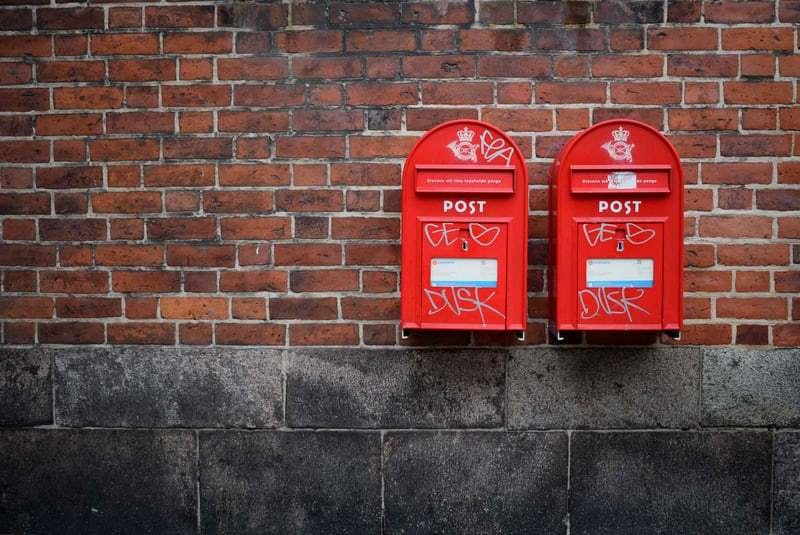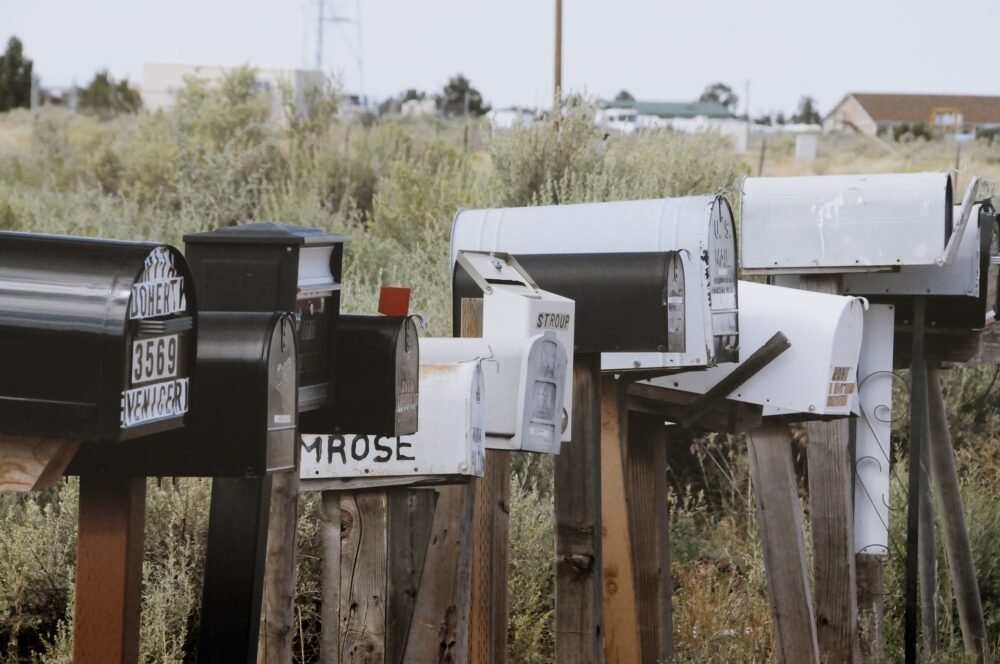Postal Services & costs
The Commission for Communications Regulation (Compreg) was established as the national regulatory authority for the postal sector by the Communications Regulation Act 2002. An Post was designated Ireland’s universal service provider by the Communications Regulation (Postal Services) Act 2011 for a period of 12 years from August 2011. The 2011 Act also enacted into Irish law EU Directive 97/67/EC as amended. The universal service provider is obliged to provide certain services. While other postal service providers operate in Ireland, only An Post is obliged to provide specific services.
Postal Costs & Services
Postal service providers
Anyone can set up a postal business to handle any form of mail. If you want to provide a postal service you must notify ComReg. A postal service involves the clearance, sorting, transport and distribution of postal packets. Services such as document exchange, courier services and the delivery of unaddressed advertising material are not considered to be postal services. When completing the notification form, you will have to decide whether your postal service is within the scope of the universal postal service. When you receive an acknowledgement from Compreg of the notification, you are authorized to provide the postal service described in your notification, subject to the conditions of authorization. You are required to draw up a code of practice covering customer complaints and redress. ComReg provides more information on the regulation of authorized providers on its website.
Universal service provider
As the universal service provider, An Post must provide a universal service to everyone and every organisation in the State. This involves at least one collection and one delivery five working days a week (that is, Monday to Friday) of postal packets weighing up to 2kgs and parcels weighing up to 20 keg’s. It must provide the following services:

- A single piece service involving the clearance, sorting, transport and distribution of letters, large envelopes, packets and parcels
- Free certificates of posting
- A registered items service
- An insured items service
- A single piece service provided free of charge to the postal service user for the transmission of postal packets for the blind or partially sighted
- A service for the clearance, transport and distribution
- A service for the clearance, transport and distribution of postal packets deposited with the universal postal service provider by a foreign designated postal operator
- A number of special facilities for the delivery of postal packets, provided at the request of the addressee, (Redirection, Business Reply, Freepost)
An Post’s other services
An Post also provides postal services that do not fall under the universal service requirement as well as services that are not postal services. Examples of the non-postal services are Express Post, Passport Express, Philatelic Services (dealing with stamps) and Courier Post. It also has other services, such as, financial services, collecting TV license fees and business directories. Information on all of An Post’s services, as well as the services available through the network of local post offices is available on An Post’s website.

Monitoring of postal services
Compreg monitors An Post’s compliance with its legal obligations as universal service provider with regard to the:
it provides and may issue directions to An Post, after consultation with interested parties. Compreg may also initiate enforcement procedures if appropriate. Compreg is required to measure the quality of service provided by An Post, and to publish regular reports. There is an official European Standard (EN13850) setting out how this should be done. The measurement is continuous and results of An Post’s performance are reported in information notices published by Compreg each quarter. The measurement relates to single piece mail only, i.e., performance of large scale or bulk mailings are excluded from this measurement. Compreg has set targets of 94% for next day delivery and 99.5% for delivery within 3 days. The most recent results achieved are available on Compreg’s consumer website.
Compreg’s regulatory role for An Post’s postal services that do not fall under the universal service requirement is much more limited. It can only make sure that An Post has adequate complaints procedures in the provision of these services and that there is no cross-subsidy between these and the universal services. Compreg has no regulatory role over An Post’s non-postal services. They are subject to normal commercial law. Compreg ensures that other postal service providers who have a postal service authorization from Compreg draw up a code of practice covering customer complaints and redress.

Parcels from abroad
If a parcel or package comes from outside the European Union (EU), you must pay the VAT and any duties that you owe, before the parcel is delivered to you. If the parcel comes from another EU country, it is not subject to VAT or duties, as these are already included in the price of the goods within the parcel.
The manner in which VAT and customs duties are collected depends on the company that delivers the package and varies from one provider to another. One of three situations may apply:
- The delivery provider pays the fee to clear the item from customs and then charges you directly
- The delivery provider tells you the relevant charge and asks for payment before delivering the package to you
- The delivery provider lets you deal directly with the Revenue Commissioners
The amount charged for clearing postal items through customs is up to the delivery provider and can vary from one provider to another. Usually these charges are based on a percentage of the value of the goods stated to be in the package. You should contact the delivery provider for a list of the charges.
Postcodes
Ireland is the only country in the European Union without a system of postcodes. The Communications Regulation (Postal Services) Act 2011 legislates for a national postcode system. In October 2013 the Department of Communications, Energy and Natural Resources announced that a postcode system would be in operation by 2015. In April 2014 the Department launched a new postcode system called Eircode.
Ireland is the only country in the European Union without a system of postcodes. The Communications Regulation (Postal Services) Act 2011 legislates for a national postcode system. In October 2013 the Department of Communications, Energy and Natural Resources announced that a postcode system would be in operation by 2015. In April 2014 the Department launched a new postcode system called Eircode.
Making a complaint
An Post’s postal services
To make a complaint about a postal service that An Post provides contact An Post’s customer service team, outline your complaint and ask for it to be resolved. If you are unhappy with the outcome of An Post’s investigation you should contact the Commission for Communications Regulation (ComReg), which can review your case and let you know if it can take further action for you.
Other authorized service providers
If your complaint relates to a postal service provided by an authorized service provider other than An Post, you should contact the relevant provider, outline the complaint and ask for it to be resolved. Contact details for authorized service providers are available on Compreg’s website. As mentioned above, Compreg may be able to help if you are unhappy with the outcome of the provider’s investigation. Compreg provides further information on postal services and how to make a complaint on its consumer website.
Compensation
If your complaint concerns a monetary claim and relates to one of the other postal services provided either by an authorized service provider or An Post, you may also take action through the Small Claims Court. Whether you can claim compensation depends on the product, service and postal service provider used. You should first check the terms and conditions of the product or service to see if you are entitled to compensation.
Contact
An Post-cONSUMER sERVICES, g.p.o fREEPOST
Location :
O’Conneel Street, Dublin 1,
Ireland
Contact:
Tel: (01) 705 7600
Web: https://www.anpost.com/